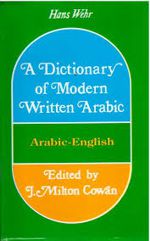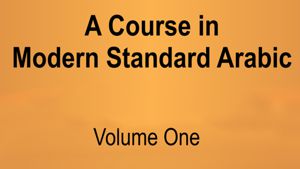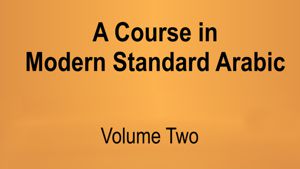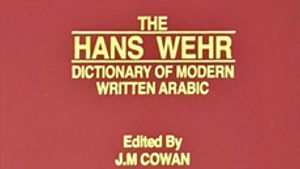Hans Wehr Dictionary

This dictionary is not for everyone. The words in this dictionary are not listed in alphabetical order. Rather, they are listed by the Arabic roots. If you do not understand Arabic grammar, this dictionary you will not find this dictionary easy to use. For instance the word maktaba is listed under ktb.
If you are a beginner at Arabic, then choose an alphabetical dictionary. Hans-Wehr is the only Modern Written Arabic (MWA) - English dictionary that the student of Arabic has to have. Others, Al-Mawrid, for example, are useful as supplements, and contain new vocabulary, and there is a more recent German edition (5th edition) of Wehr published by Harrassowitz, but this book has a standard of scholarship unrivaled by any other MWA-English dictionary. Middle Eastern published MWA-English dictionaries like Mawrid, for example, don’t give the grammatical information learners of Arabic need, such as broken plurals, verbal vowelling, verbal nouns (masdars), let alone how verbs are used with prepositions, all of which Wehr tells the user. Again, words are in root order, so maktaba (desk) [mktbh] and kaatib (writer) [k’tb] both are found under the verb kataba (to write) [ktb]. This really is the most useful way of ordering Arabic dictionaries for someone who’s mastered the basics of Arabic grammar, though an alphabetic order dictionary is a help when you’re starting and occasionally even when you’re expert.
This dictionary is NOT a dictionary of Classical Arabic (although Beeston in his anthology of Bassar bin Burd reckoned that Wehr covered the vast majority of the vocabulary of this poet of the 8th Century AD). For Classical Arabic, Lane (perhaps supplemented by Hava’s much more affordable al-Fara’id) is essential. But Lane is useless for modern Arabic. And if you’re reading medieval Arabic, you will find Wehr fills in some of the gaps in Lane.
This dictionary is NOT a dialect dictionary, though it contains many dialect words that have found their way into the written Arabic of Egypt, Iraq, etc. Arabs don’t write colloquial Arabic (at least not in formal contexts) and dialect dictionaries are specialized (colloquial Arabic-English dictionaries are usually written in a phonetic transcription rather than in the Arabic script). If you need a dialect dictionary, get one. This isn’t one.
E-Book
ISBN: 0-87950-001-8
Publisher: Spoken Language Services (1076)
Price: FREE



Page Discussion
Membership is required to comment. Membership is free of charge and available to everyone over the age of 16. Just click SignUp, or make a comment below. You will need a user name and a password. The system will automatically send a code to your email address. It should arrive in a few minutes. Enter the code, and you are finished.
Members who post adverts or use inappropriate language or make disrespectful comments will have their membership removed and be barred from the site. By becoming a member you agree to our Terms of Use and our Privacy, Cookies & Ad Policies. Remember that we will never, under any circumstances, sell or give your email address or private information to anyone unless required by law. Please keep your comments on topic. Thanks!